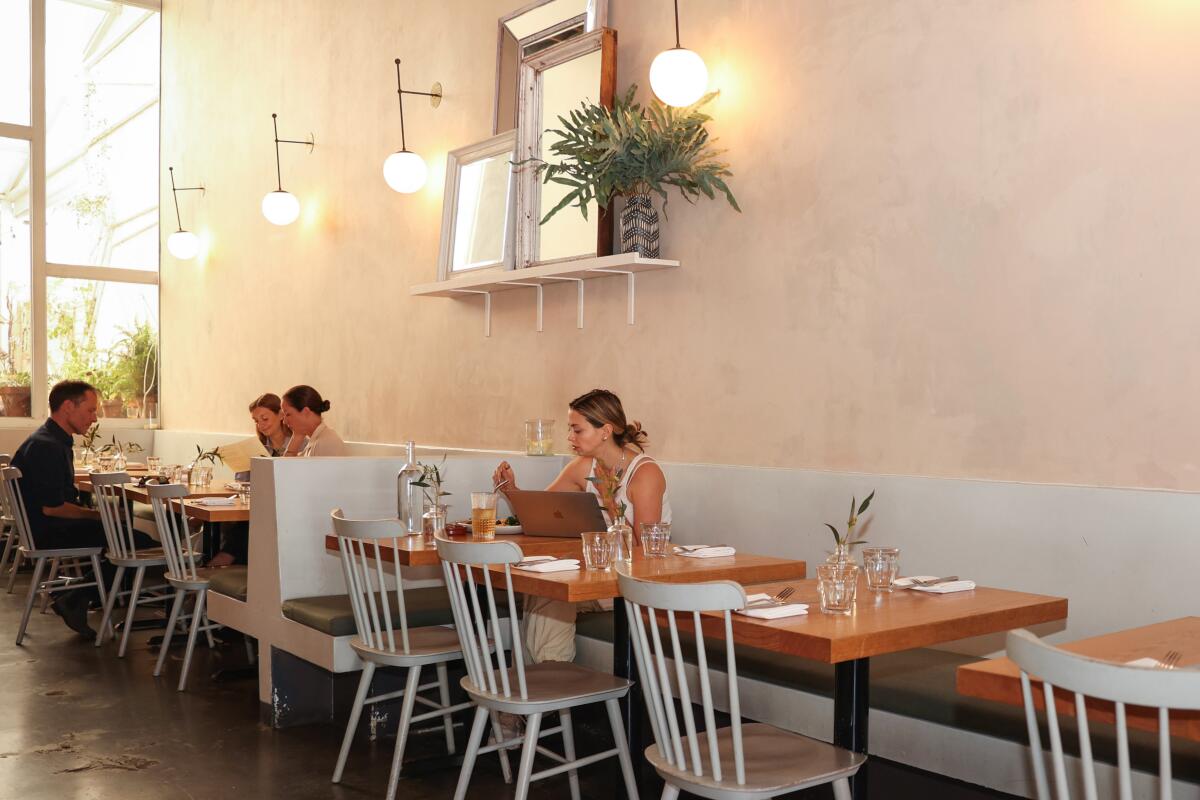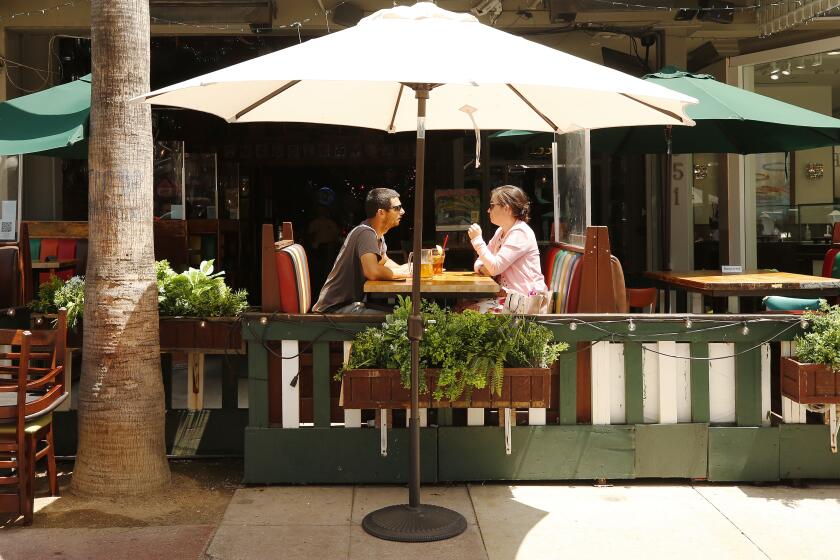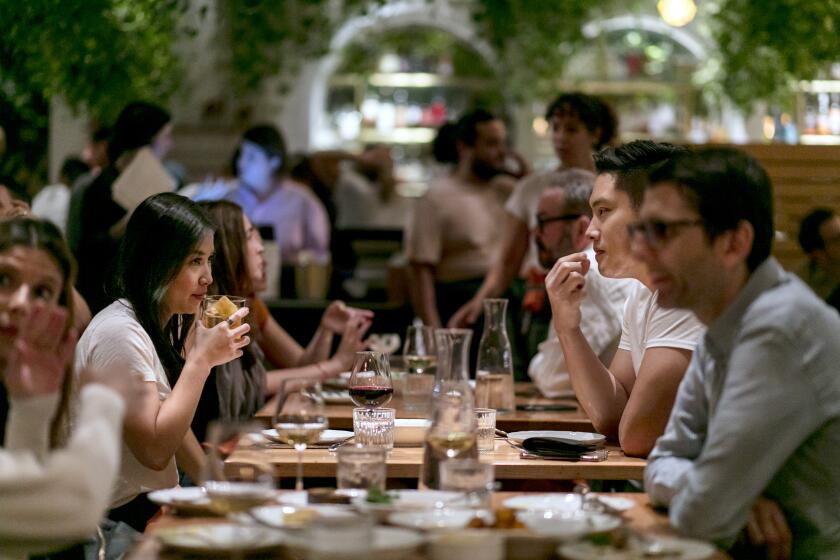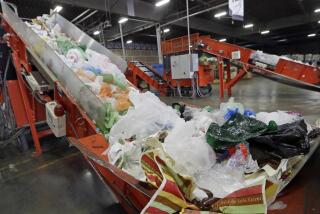Restaurants may be able to keep service fees if menu shows the charges

A new state law to prohibit hidden surcharges and other “junk fees” tacked onto customers’ bills is slated to go into effect July 1, with businesses having to include those charges in the prices they post or advertise.
Now, however, the author of that law is proposing to carve out an exception for one type of business: restaurants.
Under the proposal by Sen. Bill Dodd (D-Napa), restaurants could continue to add surcharges, mandatory gratuities or fees to diners’ bills instead of showing “all-in” prices on their menu — as long as they reveal the charges upfront, “clearly and conspicuously.”
In a release Thursday, Dodd said Senate Bill 1524 aims to clarify the new law.
“This proposal will level the playing field for all restaurants and address confusion and disagreement about what is permissible under state law,” Dodd said in a statement.
The confusion stems from conflicting statements from the state attorney general’s office, which initially said that restaurants could continue to apply surcharges as long as they were disclosed on the menu. The office later said those charges had to be included in prices listed on the menu and in promotions, ultimately confirming this position in guidelines released last month.
For example, a $15 burrito at a restaurant that levies a 10% fee to cover employee health costs will have to be listed on the menu as a $16.50 burrito. And a flier advertising a $10 lunch buffet at a restaurant that adds a mandatory 10% service charge will have to refer to the offer as an $11 lunch buffet.
In long-awaited guidelines for SB 478, the state’s ban on ‘drip pricing,’ Atty. Gen. Rob Bonta makes it clear that restaurants will have to include surcharges and fees in the prices on their menus.
The law won’t change the cost of eating out; it will just change how that cost is communicated to diners.
Nevertheless, restaurant trade groups warned that it would force them to raise menu prices significantly, driving away some customers and leading owners to cut workers’ hours. Chain restaurants were hit this year with a higher state minimum wage, which was driving many franchises in California to increase prices or cut services.
Dodd’s press secretary, Paul Payne, said the restaurant industry didn’t really get involved in the debate over the junk fee measure (SB 478) last year because restaurants “didn’t really think it applied to them.” Since then, Payne said, Dodd has heard from restaurants in his district that sought a change.
The new bill is supported by the California Restaurant Assn. and Unite Here, the labor union that represents numerous restaurant workers.
“This will enable restaurants to continue to support increased pay equity and to make contributions to worker health care and other employee benefits,” Matthew Sutton of the restaurant association said in a statement.
The junk fee ban was originally sought by Atty. Gen. Rob Bonta, who said last month that requiring all-in pricing “works to empower consumers by arming them with accurate information upfront, so that they can compare prices between merchants, and creates an equitable marketplace for businesses to compete.” His office did not respond immediately to a request for comment on Dodd’s new bill.
A state ‘junk fees’ law might ‘upend’ how restaurants operate. Customers could face sticker shock when fees are rolled into menu prices.
Jenn Engstrom, state director at the CalPIRG Education Fund, said it would be better for consumers if surcharges and other mandatory fees were included in the prices printed on a restaurant’s menu. All-in pricing makes it easier for people to glance at a menu and know how the prices stack up against other options, she said.
Nevertheless, she said, the change Dodd proposed is probably acceptable if restaurants don’t try to hide their surcharges in the fine print. As long as the disclosures are on the menu and presented clearly, she said, “that’s what matters most to us.”
Carmen Balber, executive director of Consumer Watchdog, was not so sanguine.
Junk fee protections are especially important in restaurants because so many consumers patronize them, Balber said. And while it would be good for fees to be disclosed on menus, she said, they need to be included in the prices there.
“Otherwise, you’re expecting consumers to do a lot of complicated math on each menu item,” Balber said.
More to Read
Inside the business of entertainment
The Wide Shot brings you news, analysis and insights on everything from streaming wars to production — and what it all means for the future.
You may occasionally receive promotional content from the Los Angeles Times.













